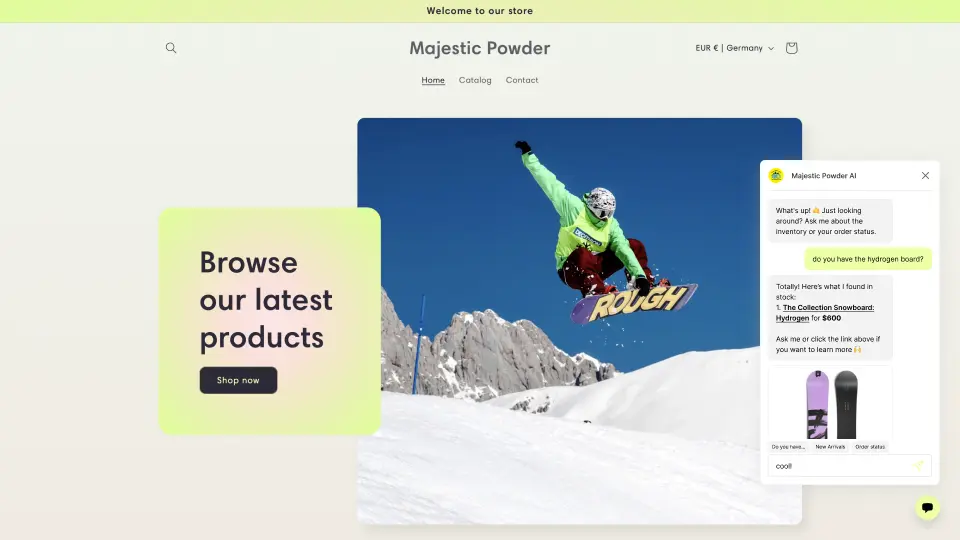
Founder of Chatwith
How to improve e-commerce customer support with a custom ChatGPT chatbot
In the bustling world of e-commerce, customer support plays a pivotal role in shaping the user experience. As online shopping continues to grow, so does the need for efficient, responsive, and personalized customer interactions. Enter ChatGPT, a customizable AI language model that's revolutionizing the way e-commerce businesses interact with their customers.
The need for improved customer support in e-commerce
Online shoppers often have a plethora of questions: from product details, shipping timelines, to return policies. Addressing these queries promptly and accurately can be the difference between a completed sale and an abandoned cart. Traditional customer support methods, like email or phone support, can sometimes be slow or not available 24/7, leading to potential lost sales.
How custom ChatGPT can make a difference
By training ChatGPT with specific e-commerce data, businesses can create an AI model tailored to their unique needs. Here's how it can transform the customer support landscape:
- 24/7 availability
With ChatGPT, customers can get answers any time of the day or night. No more waiting for business hours or navigating through lengthy FAQ sections.
- Personalized interactions
By customizing ChatGPT with your product catalog and company policies, the AI can provide specific product recommendations, answer detailed queries, and even assist in the checkout process.
- Reduced support costs
Automating common queries with ChatGPT can reduce the need for large customer support teams, leading to significant cost savings.
- Instant feedback collection
ChatGPT can be programmed to gather feedback from customers, providing valuable insights into product preferences, website usability, and more.
Check this live demo of a chatbot connected to a Shopify store:
Implementing custom ChatGPT in e-commerce
With Chatwith, all the complexity of training a custom ChatGPT is handled for you. Now it can be done in three simple steps, mostly automated:
- Data collection
Begin by gathering data relevant to your e-commerce business. This could include product descriptions, customer reviews, and common queries. If you aready have a website with all this information, you can skip this step!
- Model training
Use the refined data to train ChatGPT, allowing it to learn the nuances of your business and products. This step is fully automated with Chatwith. We will find all links on your website and collect the information to train the chatbot.
- Integration
Once trained, integrate the model into your website's code. This can be done with just one line of code and works in all popular frameworks - and custom websites too! Check our Help Center to learn more about the installation.
In conclusion
The future of e-commerce customer support is bright, and it's powered by AI. By leveraging the capabilities of a customized ChatGPT, businesses can offer a more personalized, efficient, and responsive support experience. As the e-commerce landscape becomes more competitive, tools like ChatGPT will be essential in ensuring businesses stay ahead of the curve. So, if you're in the e-commerce space, now's the time to explore the potential of AI-driven customer support. Happy selling!
More from our blog
How to improve e-commerce customer support with a custom ChatGPT chatbot
Customize ChatGPT for e-commerce to offer 24/7 support, personalized interactions, and reduce costs, while improving the online shopping experience.
Chatwith is GDPR compliant. A guide for chatbot owners.
Discover how Chatwith ensures GDPR compliance to protect your and your customers' data privacy effectively.

